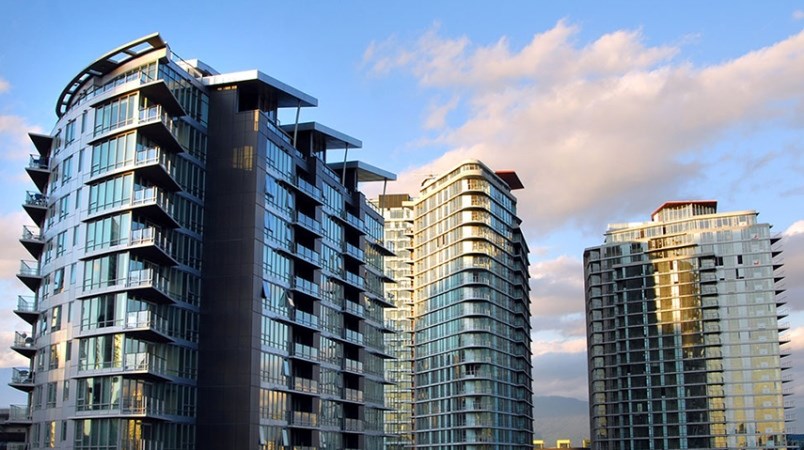When real estate investment sales figures for the first half of 2018 began being released in September, signs pointed to a record year and rising caution.
CBRE Ltd. indicated that 2018 investment deals in Vancouver could exceed last year’s total of $11.75 billion. Meanwhile, Avison Young tipped “heightened political uncertainty, rising construction costs and affordability issues” as factors in a more cautious approach among “buyers and lenders alike.”
CBRE executive vice-president Paul Morassutti, also executive managing director of CBRE’s valuation and advisory services division, echoed those sentiments at the opening breakfast of the Vancouver Real Estate Strategy and Leasing Conference on November 1.
A decade of cheap debt, originally extended on tight terms as a stimulus to keep the economy running following the financial meltdown of 2008, is now seen as a key risk to the world economy.
“Global debt now stands at an all-time high,” Morassutti noted. “After a decade of debt-fuelled growth, the party may be over, and the hangover just getting started.”
While there’s been much talk of rising interest rates in recent years, asset values have continued to rise. Rather than run shy of anteing up to secure assets, investors continue to pay for properties deemed good long-term bets.
“This capital is becoming more selective, underwriting is strict and deals are taking longer to complete,” he said. “We see capital flowing into assets with compelling growth potential – either rental growth, value-add or redevelopment potential.”
Higher interest rates, meanwhile, give banks some room to manoeuvre when the next crisis hits, though Morassutti hopes investors will continue to base decisions on fact rather than phantasms.
“There’s any number of things that could tip this market,” he said. “Sometimes you do have to just block out the background noise and focus on the fundamentals.”
Affordability is key
While investor interest in Metro Vancouver remains strong, affordability stands out as a recurring concern in the annual report PwC prepares for the Urban Land Institute on emerging trends in real estate with respect to the metropolitan region.
Toronto tops Vancouver as the No. 1 market in Canada for real estate in the 2019 edition of the report. Strong momentum in the office and industrial sector, as well as good prospects for housing, each contribute to the city’s top ranking. The cost of development sites, while rising, have yet to reach Vancouver levels, though PwC’s survey respondents expect them to reach this point soon.
Property values in Metro Vancouver, meanwhile, “continue to defy gravity” and make caution and opportunism the defining characteristic of local investors. The emphasis on value for money – and in turn affordability – means that many developers are looking outside Vancouver for opportunities to build the supply Vancouver itself needs. Some investors, seeking affordable properties with attractive cash flow, are looking to key cities elsewhere, such as Ottawa and Montreal.
With respect to housing in particular, the report notes: “Survey respondents [cite] land costs as the No. 1 development concern heading into 2019. The disagreements arise over what to do about it.”
Meanwhile, the report says, people are set to leave for other parts of the province. Many of those who remain will opt to rent, boosting demand for the limited number of those units.
Nevertheless, the local take on Vancouver remains the most optimistic of any market in the country, ranking high in locals’ opinion of investor demand.



